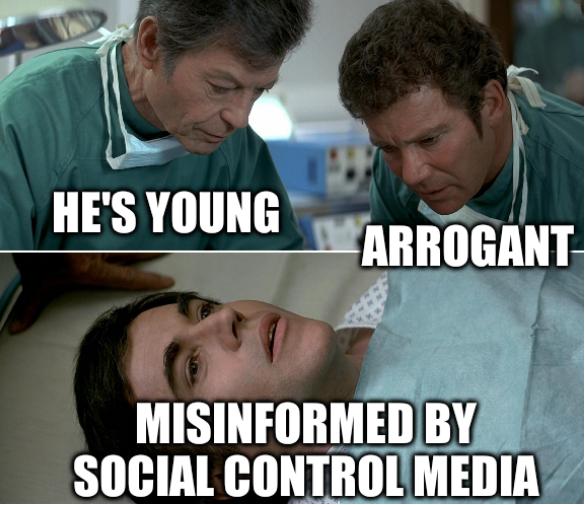

THERE is no "back to normal..."
"What many companies say about solutions they've come up with may be marketeering, or little more than shameless self-promotion."I've spoken to a close friend of mine who's a professor in this area; he says one must obviously avoid this virus even if one is young and can overcome it naturally (even asymptomatically) because of the long-term damage that can be 'silent'. He's almost 60 now and lecturing from home. There's this new study summarised here as saying that "[p]ost-infection cardiac damage found in 78% of recovering COVID19 patients" and "[t]hat's 78% of a cohort, average age 49, of whom 67% had recovered at home (ie. disease was not categorized as severe enough to need hospitalization). Cohort was normalized with respect to other risk factors relative to uninfected patients. Diagnosis by MRI."
Charlie Stross has about 500 comments on there (and no, it's not a "tweet") and he says "most COVID19 survivors—including mild disease survivors—suffer cardiac damage."
The paper is in both HTML and PDF form. A couple of portions:
Findings In this cohort study including 100 patients recently recovered from COVID-19 identified from a COVID-19 test center, cardiac magnetic resonance imaging revealed cardiac involvement in 78 patients (78%) and ongoing myocardial inflammation in 60 patients (60%), which was independent of preexisting conditions, severity and overall course of the acute illness, and the time from the original diagnosis.
[...]
A total of 78 patients who recovered from COVID-19 infection (78%) had cardiovascular involvement as detected by standardized CMR, irrespective of preexisting conditions, the severity and overall course of the COVID-19 presentation, the time from the original diagnosis, or the presence of cardiac symptoms. The most prevalent abnormality was myocardial inflammation (defined as abnormal native T1 and T2 measures), detected in 60 patients recently recovered from COVID-19 (60%), followed by regional scar and pericardial enhancement. Findings on classic parameters, such as volumes and ejection fractions, were mildly abnormal. Myocardial measures, native T1 measures, and native T2 measures provided the best discriminatory value against healthy controls and risk factor–matched controls for exclusion of any myocardial disease or confirmation of COVID-19–related involvement, respectively.
"In my own view, social control media dooms us not only politically; it's costing lives."I am personally upset to see some of the junk anti-science that social control media is nowadays full of; it's rewarded with many likes, passed around based on gut feeling alone (or political standpoint) and in sites like Facebook it has vastly broader reach than journals like the above or even press that bothers with fact-checking (or consults domain experts).
In my own view, social control media dooms us not only politically; it's costing lives. It makes people misguided and reinforces misguidance by 'balkanising' similar groups, causing 'groupthink' that revolves around falsehoods. All social control media inherently became vulnerable to this. It's a regretful transition from responsible journalism to hearsay and provocation.
"With about 20 million confirmed cases we don't really know the long-term effects yet. It hasn't even been a year."I myself am not a coronavirus expert (and I don't pretend to be one, unlike a certain Bill Gates, who is just looking to profit from the whole thing). But I do try to read accurate information about it and I speak about it to people with a clue (mostly listening). The general consensus is that not only direct fatalities should be cause for concern. With about 20 million confirmed cases we don't really know the long-term effects yet. It hasn't even been a year. ⬆